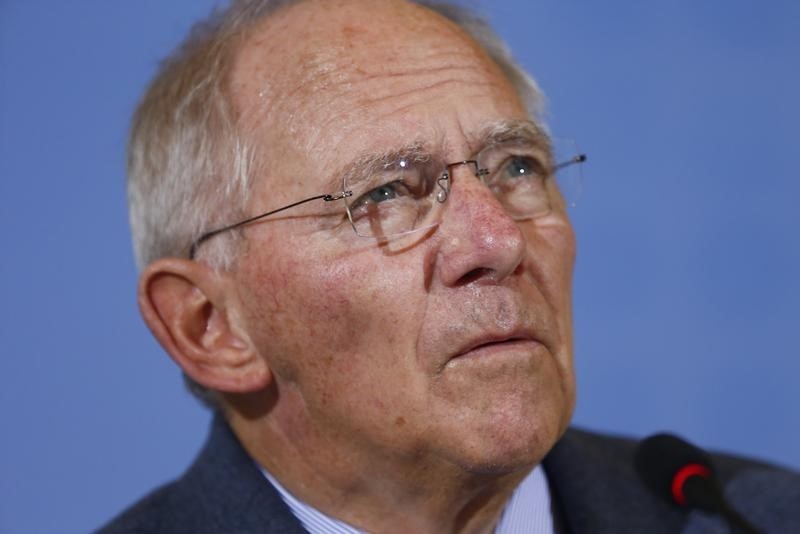By Michael Nienaber
BERLIN (Reuters) - Germany slightly lowered its tax revenue estimate for next year due to legislative changes, but Finance Minister Wolfgang Schaeuble said he was still aiming for a balanced budget despite the ballooning costs of coping with a record influx of refugees.
Employment in Europe's largest economy has reached a record high and wages are increasing, boosting the revenue from income tax. In addition, strong private consumption is pushing up receipts from valued added tax.
At the same time, German states and municipalities are struggling to cope with an unprecedented number of asylum seekers.
The Finance Ministry's panel of tax experts on Thursday put this year's total tax take - including federal, state, municipal and EU revenues - at 672 billion euros ($730 billion), up roughly 5 billion euros from the last estimate in May.
In 2016, the total tax take is expected to rise even further to a record 686 billion euros which is around 5 billion euros less than previously estimated. This is mainly due to legislative changes such as a correction of the bracket creep in income tax.
Schaeuble said the government, which met its goal of a balanced budget a year ahead of schedule in 2014, would repeat the feat in 2015.
But he was more cautious for next year, pointing to "high uncertainties" about how many refugees would continue to come to Germany. "Thanks to the surplus this year, we can also manage without new debt in 2016 from today's point of view," he said.
The high number of migrants would present Germany with a financial challenge mainly in 2016, the minister said, adding that he hoped the monthly numbers would soon go down again.
Federal states and municipalities have said they could face costs of up to 16 billion euros next year to deal with the refugee crisis.
Schaeuble said the federal government would invest roughly 8 billion euros next year to shelter and integrate asylum seekers.
Coalition sources have said that the rising costs of coping with more than 800,000 refugees this year and probably even more next could mean that Schaeuble might be forced to skip the goal of a balanced budget in the course of 2016.
Schaeuble said the Volkswagen (DE:VOWG) emissions scandal was not reflected in the tax estimates yet. He added Berlin was working on legislation to ensure that the company would pay the extra car taxes incurring by higher CO2 emissions levels from VW vehicles so that customers would be protected.
"That's something that is in the own interest of the company," Schaeuble said, adding that VW could only overcome the crisis if the company restored trust and continued to sell cars.

The minister called the VW scandal a "bitter story" and described the carmaker as an important part of the German economy which Berlin did not want to see damaged further.